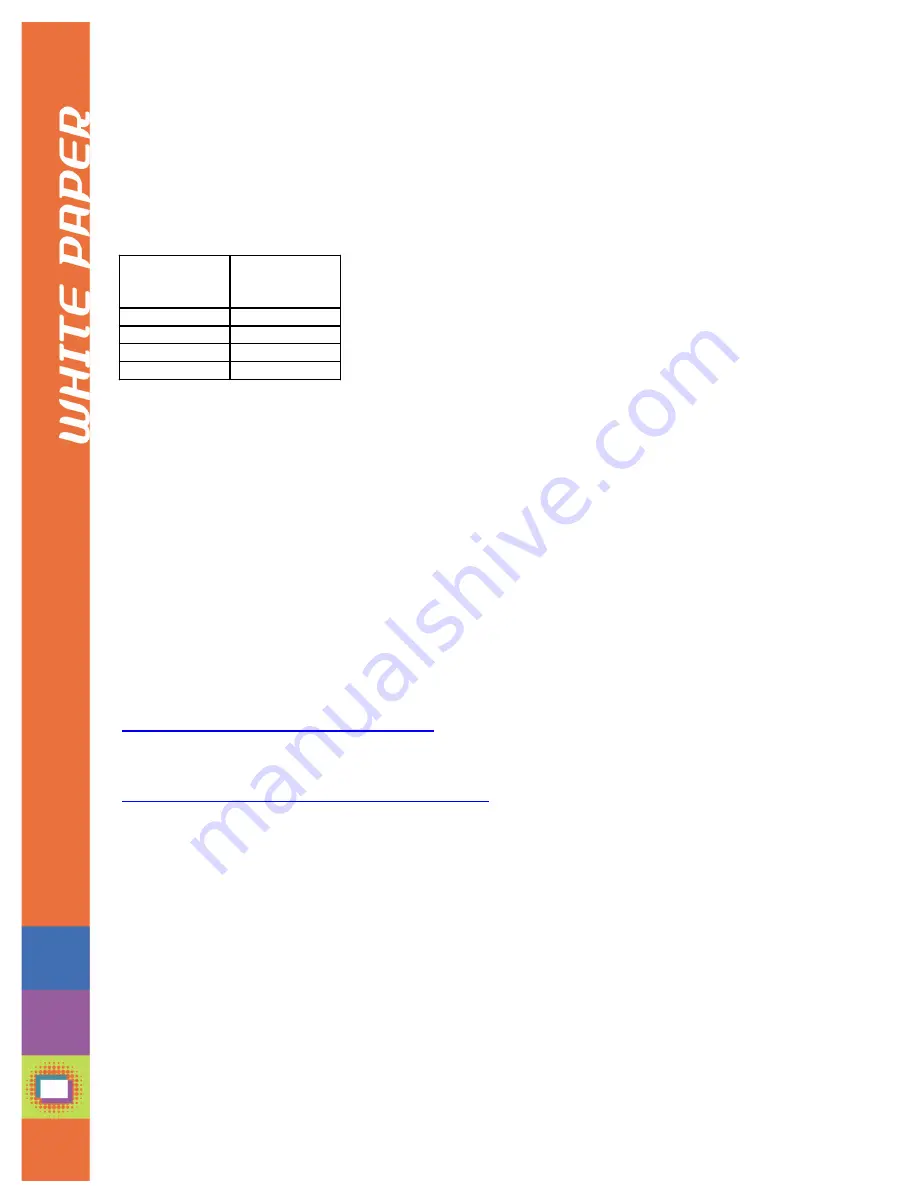
displays have been certified according to manufacturing standards and do not reveal pixel faults to
the untrained human eye. Remember that each pixel, or dot, on a color LCD is actually made up of
3 sub-pixels
one for red, one for green and one for blue. On an 18" VIS LCD display, the typical
resolution is 1280 pixels by 1024 pixels (often referred to as 1280 x 1024 or SXGA), so there are
1280 x 1024 x 3 sub-pixels, or 3.9 million sub-pixels
each of which measures less than 0.28 mm
in height and 0.09 mm in width. For comparison purposes, the finest tip of a mechanical pencil
designed for precision drafting work is often 0.3 mm, so a sub-pixel at 0.09 mm is less than 1/3 of
this width and barely perceptible to the naked eye in most working environments.
Class
Number of
sub-pixel
faults
I
0
II
1-5
III
6-50
IV
51-500
Table 1. Maximum number of faults per type per million pixels.
Summary
Until yields increase, material costs come down or new technology is developed to address the
issue of defective pixels in LCDs, this phenomenon will occasionally present itself to some users
under some circumstances. Most users, however, will never notice LCD pixel defects within the
acceptable range. In addition, despite the occasional lit pixel to contend with, LCD technology
continues to offer significant benefits over CRTs. These older-technology displays have other
annoying artifacts, such as geometric distortion and misconvergence, which are nonexistent in
LCDs. In addition, CRTs’ greater size, weight and power consumption make LCDs all the more
attractive, even with the occasional defective pixel. Finally, some more good news for LCD users:
transistors do not generally "go bad" over time, so if there are no noticeable dead or lit pixels upon
initial purchase, then chances are none will become defective over time.
For more information on dead pixels, refer to:
•
“Dealing with Dead Pixels in TFT Displays,” Charles W. Moore,
Low End Mac.
http://www.lowendmac.com/misc/2k0323pf.htm
•
“New EU Standard Targets Flat Panel Visual Displays: ISO 13406-2 Picks Up Where ISO 9241
Leaves Off,“
TUV Rheinland World News, The International Journal of Safety and Standards,
Trends & Information
.
http://www.us.tuv.com/news/newslett/nl0699/item3.html
This white paper was published in and based on information as of August 2001. Technical information is subject to change.





















